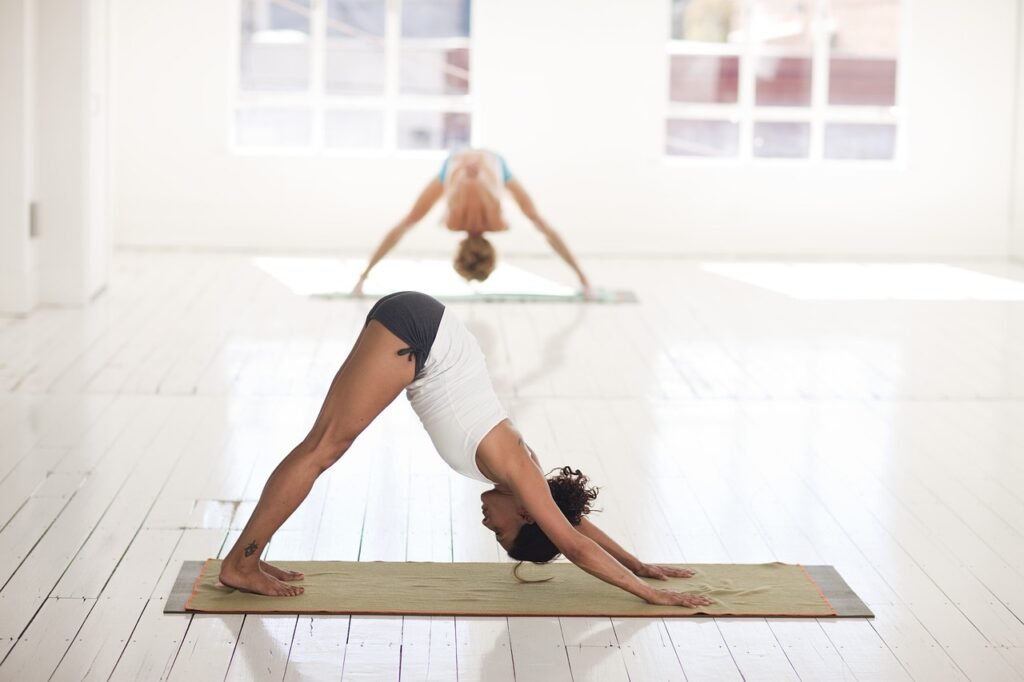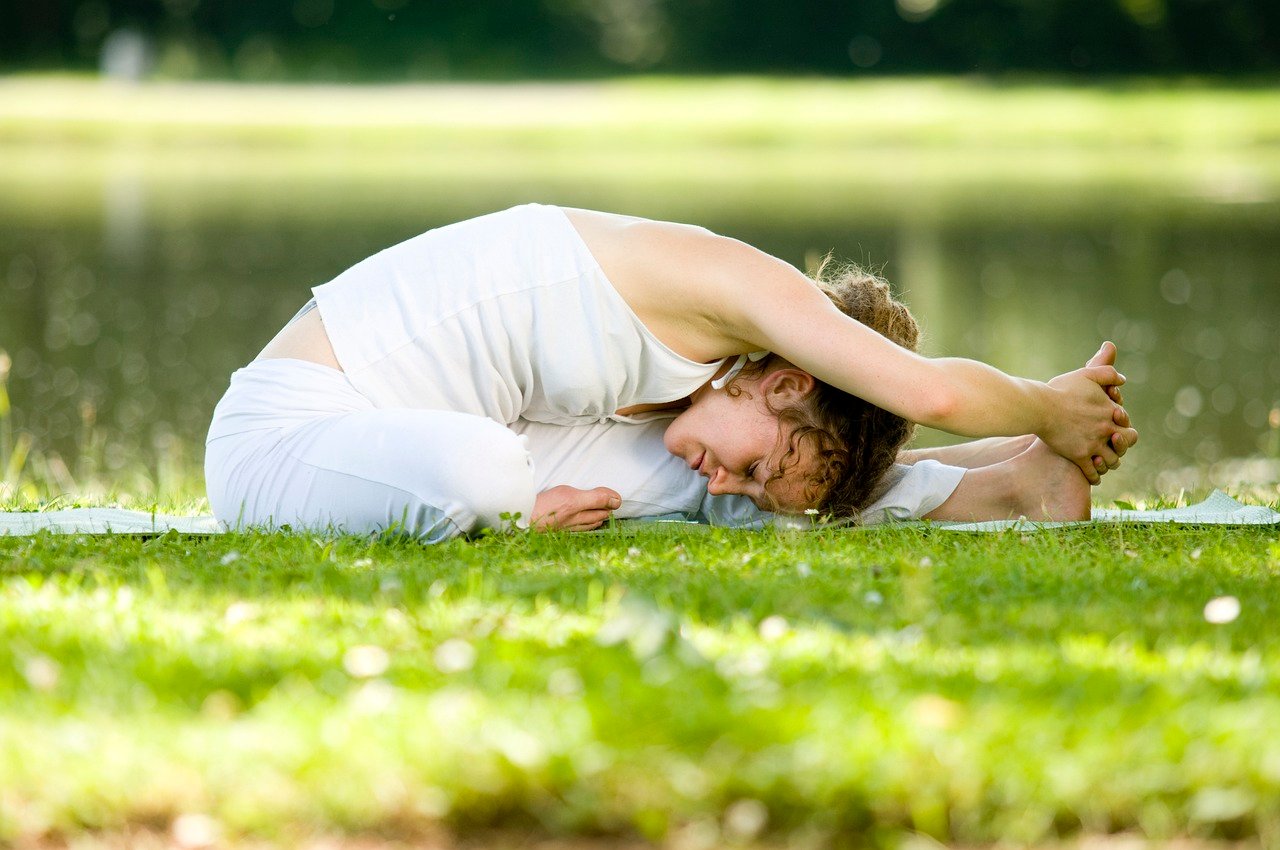Today, we’ll talk about karma yoga: the yoga of selfless action. I’d love to share simple tips on how we might use selfless service as a precious part of our regular yoga practice, and it really is quite simple and might give us quite a deal.
What’s Karma Yoga?
Karma yoga is to make what we do a meaningful part of our yoga journey. Lifting ourselves from a singular focus on individual need to connecting with something much bigger still comes by action without attachment to outcome and not wanting anything in return, like doing a good deed just because it’s the right thing to do and not because you want something back.
O Arjuna: A far lower kind of performance than the performance unselfishly motivated is selfish action. Seek refuge in the knowledge of equanimity. Pitiable are those who are motivated by results. Krishna to Arjuna on karma yoga, in the Bhagavad Gita (verse 2:29)
Can Any Action Be Karma Yoga?
It is not true that the right kind of karma yoga exists only when one performs activities that can benefit humanity directly. Again, it gets a bit too complex. Who defines what is “helping humanity”? We all are different; hence our ideas are bound to be different as well.
I believe karma yoga can be so simple: we can do any kind of action as karma yoga if we are honest about our motives. When we do things with a spirit of selfless service, just wanting to do good, then our acts become karma yoga.
Now, let’s examine what it means to bring a karma yoga attitude into our daily life.
Fake Gurus in Yoga
When I listened to this Mallinson interview, I was in an online course about the history of modern yoga in the West. The teacher, Philip Deslippe, was doing some of his research about “wandering yogis” who arrived in the United States in the early 1900s and most of those called yogis did not have real yogic training or belonged to any tradition whatsoever. Most of them were just ordinary Indians who came to America in the hope of employment. Because labor laws were discriminatory by their nature, those alternative sources of income were often something like portraying themselves as spiritual gurus or “illuminates”.
The Movie Kumare
Perhaps you’ve seen the documentary reality film Kumare from 2011. In it, filmmaker Vikram Gandhi takes on the task of pretending to be a guru. Soon enough, in time while sporting a dashing Indian accent and sporting a full beard, he is then followed by a gaggle of adoring students. Still, just like the wandering yogis of old, Kumare is no yogi master-he’s faking it.
The film questions what makes the true guru and why people are attracted to this person so easily, who looks like he or she is one, but it’s not a real one.
Kundalini Yoga of Yogi Bhajan – A Case of Dishonesty?
Philip Deslippe is the alumnus of the study on roaming swamis of the early 20th century. He used to practice Yogi Bhajan’s Kundalini Yoga. With researcher’s curiosity, he dived deep into the history of Kundalini Yoga.
Deslippe interviewed Yogi Bhajan’s earliest writings and many of his original students. What he found was surprising: Kundalini Yoga, as Yogi Bhajan taught it, wasn’t a historical tradition at all, as it so often was claimed. Rather, it seemed a mashup of various practices Yogi Bhajan created himself, and he even fashioned a history to make it seem more authentic, positioning himself as the head of this “new” tradition.
Choosing a Yoga Practice Carefully
Deslippe advises choosing a yoga practice with the same careful consideration you might use when buying a used car: You want to ensure it is what you’re getting. As he “kicked the tires” of Kundalini Yoga, he came to realize the details didn’t add up.
So, is Yogi Bhajan’s Kundalini Yoga the real deal? That’s for you to decide.
Ghost Yogi Ramacharaka

One of the most dishonest examples in early yoga history is the figure of “Ramacharaka.” At the start of the 20th century, several books on yoga were published under this name. These texts became some of the first widely-read books on yoga in the West and influenced the early generations of modern yoga practitioners.
But here’s the issue: Ramacharaka wasn’t a real person. An American lawyer named William Walker Atkinson invented him. Atkinson had no actual training in yoga; instead, he was part of the “New Thought” movement, a religious and self-help movement in the U.S. He ghostwrote the “Ramacharaka” books on yoga and spirituality.
When I picked up Ramacharaka’s book on Hatha Yoga a few years ago, I found it to be nonsense—even before I knew it was fake. Imagine if the book had resonated with me, and I’d based my yoga practice on it. Would that have been authentic yoga? I think not.
What Makes Yoga Authentic?
The Cambridge Dictionary defines authentic as something that is “real, true, or what people say it is.” By this definition, when someone presents a yoga method or tradition as something it isn’t, we can say it’s inauthentic.
Conclusion
For all of us in yoga, it’s important to stay authentic and transparent. We like to think of yoga as a science, and there’s no room for lies in science. Staying honest about our practices will help us build a yoga tradition based on truth and wisdom, while lies only lead to confusion.
FAQs: Authentic Yoga – Uncovering the Myths and Realities
1. What is authentic yoga?
Authentic yoga means practicing yoga that stays true to its core principles and traditions. It focuses on honest, mindful practices that connect us with the essence of yoga.
2. Can yoga be inauthentic?
Yes, some forms of yoga may be considered inauthentic if they misrepresent yoga’s true values or claim to be something they are not. Authentic yoga is about honesty, not just appearances.
3. How do I know if my yoga practice is authentic?
Ask questions, look into the history of the method, and trust your instincts. Authentic yoga emphasizes truthfulness, self-awareness, and a genuine connection to practice.
4. Why is authenticity important in yoga?
Authenticity helps build a yoga practice based on trust, truth, and wisdom. Being authentic in yoga connects us more deeply to the practice and to ourselves.
5. Can anyone practice authentic yoga?
Yes! Authentic yoga is for everyone. It’s less about specific poses and more about the intention, honesty, and mindfulness you bring to your practice.
